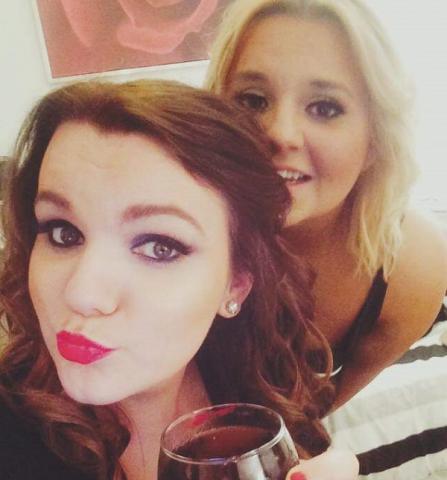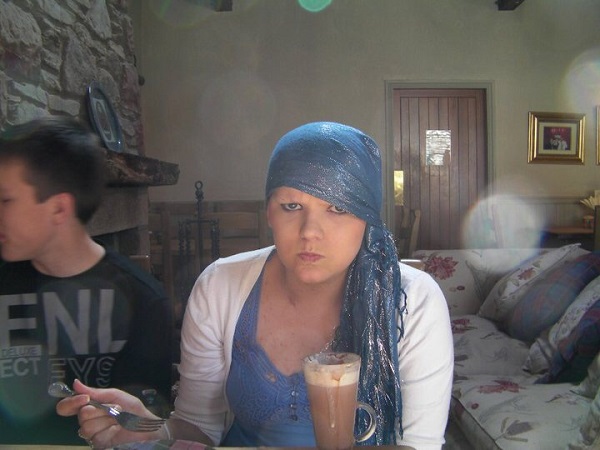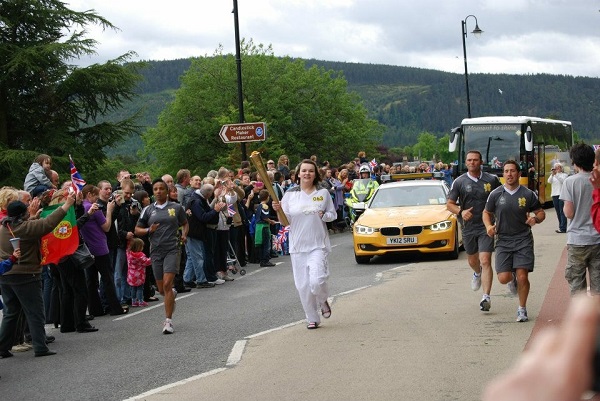Amanda had a stem cell transplant when she was 16. She spoke to Billie in the patient services team about her experiences.
Can you tell me when you first started to feel unwell?
I was away on holiday with my family, and I noticed I had a few bruises. I thought it was due to the stress of my exams!
But I fell by the pool one day, and my foot bruised so badly it was almost black. When I was back at school I found I was being sick too, so I was taken to a 24-hour doctor’s service. I did a urine sample and it came out looking like pure blood. That’s when I knew something was really wrong – when I saw the doctor’s reaction. I went to hospital that night and I was diagnosed with acute myeloid leukaemia (AML) the next day.
Did anyone talk to you about your fertility?
They didn’t really, as I was 15 when I was diagnosed. I turned 16 in hospital which I can confirm was rubbish, but one I’ll always remember, I suppose!
Actually, I do remember a conversation a bit later on, where they said it would be much harder for me to have kids in the future. At 16, it’s not something that you think about, really. It’s only when I was in my early 20s that I’ve started to feel more affected by that.
Do you have any siblings?
I have an older brother and he wasn’t a match. To be honest, I think I was very naive about it. I never thought they wouldn’t find a match.
It’s only now that I’m older and I’ve done work with Anthony Nolan that I realise that not having a good match, especially if you’re in an ethnic minority, is a very scary possibility you have to deal with.
Anthony Nolan found the perfect match for me, and that is probably why I am doing so well now. People that look at me now don’t even realise I was ever sick, which is a great feeling.
At 16, there must have been a lot of complex information to take in. Did you feel like you fully understood what a transplant was and what recovery could be like?
It was a bit of a blur but my doctors were good at explaining things; they simplified the process and didn’t use loads of medical words. I figured it out in my own way.
I had dogs at the time and the bones they chewed had bone marrow in them so I was like, ‘is that what I’m going to get?’ But they explained it was in the blood and that I needed a new immune system.
Who were your support network during your transplant?
We are from Aberdeen and the transplant centre in Glasgow is nowhere near that! So it was only really my mum and dad who could visit me.
My brother was doing an apprenticeship at the time, so he had to work, but that was OK as I wanted him to be at home to look after the dogs! My brother struggled with me being sick, though. I’m his little sister and he’s not really an emotional guy.
What was the hardest part about being in hospital for a long time?
Missing out. That was the year that everyone my age decided what they wanted to do with their life. Because after your Highers, you start to think about uni and you go on to be a prefect and stuff like that, and I just missed all of that. Friends were talking about learning to drive too.
It was a really annoying and frustrating time in my life, as that was the point when you changed from being a kid to actually wanting to be an adult. All my friends wanted to go out. When it came to prom, everyone was looking for pretty dresses and I was looking for ones that covered up scars.
Can you tell me a bit about how your treatment affected your body image and how you saw yourself?
I know it’s a really vain thing but losing my hair was a big deal. My hair was really thick and blonde. I loved my hair. When I went for my transplant and had radiotherapy, it started to fall out and get patchy.
I asked if they could shave it, but they couldn’t find clippers on the ward so I pulled my hair out. You can’t feel it because the hair has died. So I was so bored in isolation that I pulled my hair out. I can actually say I did that!
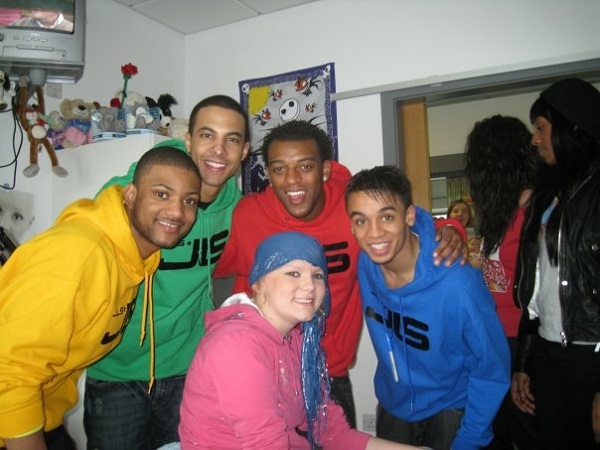
'I had a really solid group of friends, which helped. Everyone really looked out for me and if they could see I was struggling, they were there.'
How did it feel being out of school?
I was probably a bit too eager to go back to school, I’m not sure I was as well enough, but I was just so bored I couldn’t wait to get back. I put way too much pressure on myself to do it as I’d been off for a year.
I had a really solid group of friends, which helped. Everyone really looked out for me and if they could see I was struggling, they were there.
I still had to wear a headscarf to school and some of the new first years obviously didn’t know me, or know what had happened. And I remember one day taking my headscarf off and one of them said, ‘OMG, she looks like a boy.’
A bunch of lads in my year came to my defence, shouting, ‘You don’t know what she’s been through.’ It was nice that they felt protective over me but I remember getting upset.
People stare so much if you look different. It’s unreal. But I think it’s also because I used to wear my headscarves in lots of funky ways, to the side and with flowers in them.
Did your relationship with your parents change?
Yeah, they became much more overprotective – in fact, they are still overprotective now and I’m 24! We were never really close as a family before I got ill, but like families do when something happens they rally round and you realise how much you all mean to each other.
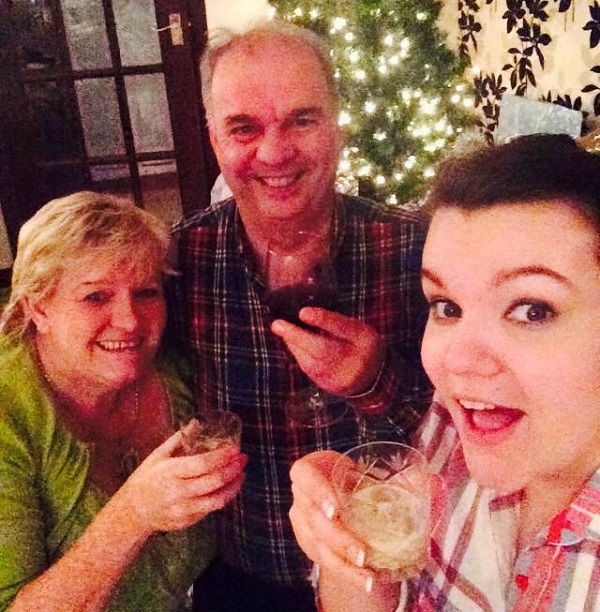
'When something happens, your family rallies around, and you realise how much you all mean to each other.'
Do you still sometimes get upset about everything that’s happened?
I do. I have two close friends whose mums both experienced cancer, and we are still the best of friends because they just know what it’s like for someone to go through something like this. Sometimes you just need someone to talk to who understands.
We do lots of charity work, and I talk about my experiences at dinner dances which can get emotional. Especially when I see my family get upset. It triggers memories in my head.
A lot of the time the tears are actually happy, though, because I’m thinking of the things I’ve been able to achieve since my transplant. I went to work abroad which I just loved and I wouldn’t have been able to do that without Anthony Nolan. It just makes you realise how lucky you are.
I only get really upset if we’ve had a drink and the family are reminiscing!
Can you tell me about your fundraising?
We did a big fundraiser a couple years after my transplant and it was a brilliant success – we’d sold the tables out before we’d even advertised it! People just responded really well and were so generous. We’ve done two more dinner dances since and raised a total of 64,000 between a few charities including Anthony Nolan. It feels good to raise money for these charities that helped me so much, to give back and also to make sure future cancer patients have everything they need.
Do you have any tips or advice for young people going through transplant?
Try and do things that make you feel like you – like the person you were before you got sick. That normal stuff is really important.
Be a teenager. Don’t let the isolation, or the things you can’t do when you’re recovering, make you think that you aren’t normal.
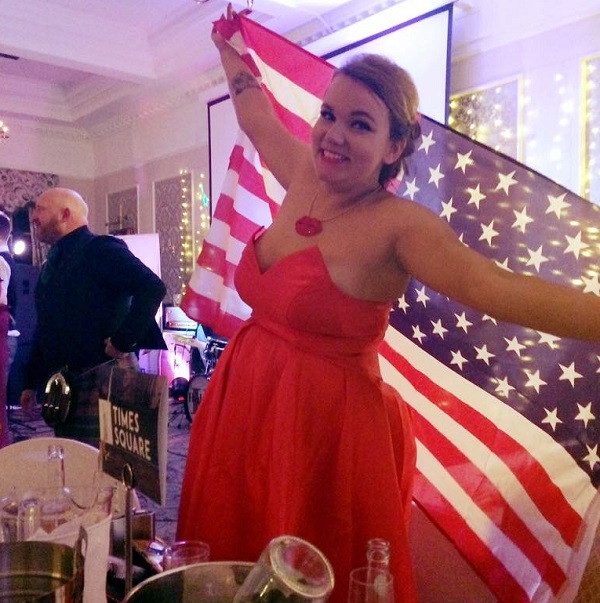
'I went to work abroad which I just loved and I wouldn’t have been able to do that without Anthony Nolan. It just makes you realise how lucky you are.'
What would you say to people your age about the importance of joining the Anthony Nolan register?
I’d just remind them that there are people the same age as them going through awful things, and they can help with that.
If you could be a match, you are giving those people another chance to become what they want to be. You are giving them a do-over, I guess, and a chance to survive.
